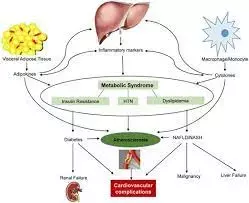- Home
- Medical news & Guidelines
- Anesthesiology
- Cardiology and CTVS
- Critical Care
- Dentistry
- Dermatology
- Diabetes and Endocrinology
- ENT
- Gastroenterology
- Medicine
- Nephrology
- Neurology
- Obstretics-Gynaecology
- Oncology
- Ophthalmology
- Orthopaedics
- Pediatrics-Neonatology
- Psychiatry
- Pulmonology
- Radiology
- Surgery
- Urology
- Laboratory Medicine
- Diet
- Nursing
- Paramedical
- Physiotherapy
- Health news
- Fact Check
- Bone Health Fact Check
- Brain Health Fact Check
- Cancer Related Fact Check
- Child Care Fact Check
- Dental and oral health fact check
- Diabetes and metabolic health fact check
- Diet and Nutrition Fact Check
- Eye and ENT Care Fact Check
- Fitness fact check
- Gut health fact check
- Heart health fact check
- Kidney health fact check
- Medical education fact check
- Men's health fact check
- Respiratory fact check
- Skin and hair care fact check
- Vaccine and Immunization fact check
- Women's health fact check
- AYUSH
- State News
- Andaman and Nicobar Islands
- Andhra Pradesh
- Arunachal Pradesh
- Assam
- Bihar
- Chandigarh
- Chattisgarh
- Dadra and Nagar Haveli
- Daman and Diu
- Delhi
- Goa
- Gujarat
- Haryana
- Himachal Pradesh
- Jammu & Kashmir
- Jharkhand
- Karnataka
- Kerala
- Ladakh
- Lakshadweep
- Madhya Pradesh
- Maharashtra
- Manipur
- Meghalaya
- Mizoram
- Nagaland
- Odisha
- Puducherry
- Punjab
- Rajasthan
- Sikkim
- Tamil Nadu
- Telangana
- Tripura
- Uttar Pradesh
- Uttrakhand
- West Bengal
- Medical Education
- Industry
Cardiac insulin resistance may predict risk of metabolic syndrome and atherosclerosis in apparently healthy individuals

Cardiac insulin resistance is linked to higher incident metabolic syndrome and early atherosclerosis in apparently healthy individuals, suggests a new study published in the Diabetes Care.
Experimental evidence suggests that metabolic syndrome (MetS) is associated with changes in cardiac metabolism. Whether this association occurs in humans is unknown.
821 asymptomatic individuals from the Progression of Early Subclinical Atherosclerosis (PESA) study (50.6 [46.9–53.6] years, 83.7% male) underwent two whole-body 18F-fluorodeoxyglucose positron emission tomography-magnetic resonance (18F-FDG PET-MR) 4.8 ± 0.6 years apart. Presence of myocardial 18F-FDG uptake was evaluated qualitatively and quantitatively. No myocardial uptake was grade 0, while positive uptake was classified in grades 1–3 according to target-to-background ratio tertiles.
RESULTS
One hundred fifty-six participants (19.0%) showed no myocardial 18F-FDG uptake, and this was significantly associated with higher prevalence of MetS (29.0% vs. 13.9%, P < 0.001), hypertension (29.0% vs. 18.0%, P = 0.002), and diabetes (11.0% vs. 3.2%, P < 0.001), and with higher insulin resistance index (HOMA-IR, 1.64% vs. 1.23%, P < 0.001). Absence of myocardial uptake was associated with higher prevalence of early atherosclerosis (i.e., arterial 18F-FDG uptake, P = 0.004). On follow-up, the associations between myocardial 18F-FDG uptake and risk factors were replicated, and MetS was more frequent in the group without myocardial uptake. The increase in HOMA-IR was associated with a progressive decrease in myocardial uptake (P < 0.001). In 82% of subjects, the categorization according to presence/absence of myocardial 18F-FDG uptake did not change between baseline and follow-up. MetS regression on follow-up was associated with a significant (P < 0.001) increase in myocardial uptake.
Apparently healthy individuals without cardiac 18F-FDG uptake have higher HOMA-IR and higher prevalence of MetS traits, cardiovascular risk factors, and early atherosclerosis. An improvement in cardiometabolic profile is associated with the recovery of myocardial 18F-FDG uptake at follow-up
Reference:
Ana Devesa, Valentin Fuster, Ravi Vazirani, Inés García-Lunar, Belén Oliva, Samuel España, Andrea Moreno-Arciniegas, Javier Sanz, Cristina Perez-Herreras, Héctor Bueno, Enrique Lara-Pezzi, Ana García-Alvarez, Vicente Martínez de Vega, Leticia Fernández-Friera, Maria G. Trivieri, Antonio Fernández-Ortiz, Xavier Rossello, Javier Sanchez-Gonzalez, Borja Ibanez; Cardiac Insulin Resistance in Subjects With Metabolic Syndrome Traits and Early Subclinical Atherosclerosis. Diabetes Care 1 November 2023; 46 (11): 2050–2057.
Keywords:
Cardiac, insulin, resistance, linked, higher, incident, metabolic, syndrome, early, atherosclerosis, apparently, healthy individuals, Ana Devesa, Valentin Fuster, Ravi Vazirani, Inés García-Lunar, Belén Oliva, Samuel España, Andrea Moreno-Arciniegas, Javier Sanz, Cristina Perez-Herreras, Héctor Bueno, Enrique Lara-Pezzi, Ana García-Alvarez, Vicente Martínez de Vega, Leticia Fernández-Friera, Maria G. Trivieri, Antonio Fernández-Ortiz, Xavier Rossello, Javier Sanchez-Gonzalez, Borja Ibanez
Dr. Shravani Dali has completed her BDS from Pravara institute of medical sciences, loni. Following which she extensively worked in the healthcare sector for 2+ years. She has been actively involved in writing blogs in field of health and wellness. Currently she is pursuing her Masters of public health-health administration from Tata institute of social sciences. She can be contacted at editorial@medicaldialogues.in.
Dr Kamal Kant Kohli-MBBS, DTCD- a chest specialist with more than 30 years of practice and a flair for writing clinical articles, Dr Kamal Kant Kohli joined Medical Dialogues as a Chief Editor of Medical News. Besides writing articles, as an editor, he proofreads and verifies all the medical content published on Medical Dialogues including those coming from journals, studies,medical conferences,guidelines etc. Email: drkohli@medicaldialogues.in. Contact no. 011-43720751


